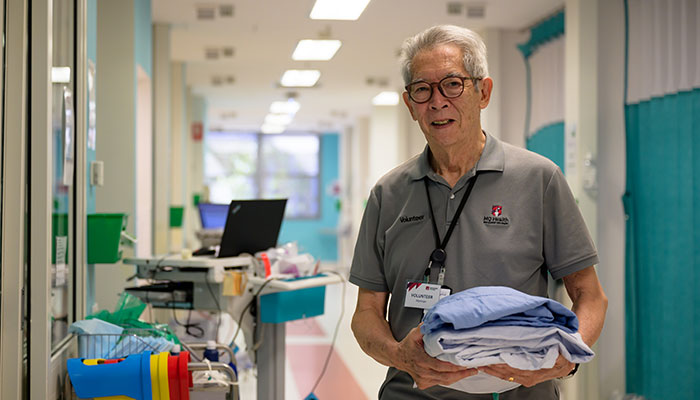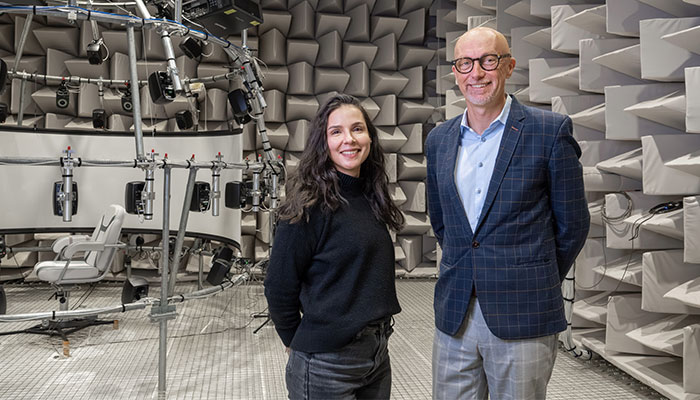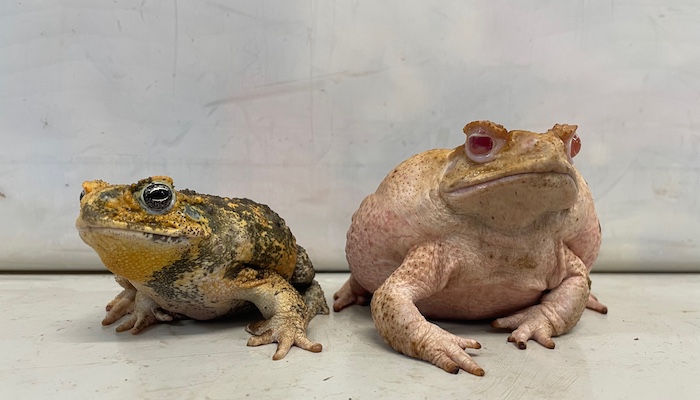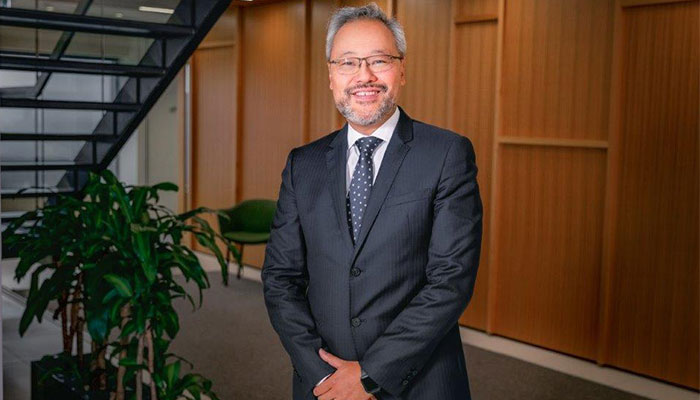"I’ve been volunteering here since the beginning of 2022. My wife and I had both been patients, and I was so impressed by how we were treated that I wanted to be a part of that and give something back.

A man for others: Before becoming a volunteer in the Macquarie University Hospital, Norman King (pictured) worked as a flight engineer at Qantas for 41 years. Image: Jesse Taylor
Some of my time, I’m on the front desk of the Clinic Building. People come in looking a bit lost and worried, and sometimes they only know their doctor’s first name, so finding the right room can be a challenge. I find a little humour goes a long way. The rest of the time I’m in the Day Surgery Unit, helping the nurses and preparing meal trays. When people have been fasting, they’re pretty keen for that first sandwich and cup of tea after surgery. They look like good sandwiches, too. I think I’d choose the ham, cheese and tomato.
Volunteering to me is person-to-person, helping people one-on-one and hopefully making a difference in their lives. When they arrive at the hospital, people are having a health issue investigated, so naturally they’re worried. I try to make their entry and departure lighter, so they feel a bit less anxious and remember the hospital positively.
I’m also on the MQ Health Consumer Advisory Committee. One of the things we do is provide a sounding board on patient information, on whether it can be easily understood by people without that medical background. We aren’t clinicians, but the hospital values our input, which is really refreshing.
Because we would be flying into a war zone, our CEO asked for volunteers from senior staff, including me as Chief Flight Engineer. We were happy to do it because we wanted to help.
I’m 79 now, and before I retired, I worked in flight engineering at Qantas for 41 years. I’ve always felt that helping others is important. One of the most memorable things I was involved in was the UN‑backed Operation Solace in 1993.
Somalia was in the middle of a civil war at the time, and people were starving, but aid wasn’t getting through, because the warlords were siphoning it off. US Marines had been there for four or five years, and Australia was sending troops to protect the aid convoys.
It’s 12,000km from Townsville to Mogadishu. The commander of the Australian battalion was David Hurley, our current Governor-General, and he wanted to make sure his troops arrived rested and ready for whatever they were going to face on the ground, so he chartered a Qantas 747 for two flights.
Because we would be flying into a warzone, our CEO asked for volunteers from senior staff, including me as Chief Flight Engineer. We were happy to do it because we wanted to help.
We landed in Mogadishu under gunfire, but the US Marines didn’t seem concerned. They just said, “Don’t worry – happens all the time.” We were only on the ground for a few hours, but we got a close look at what goes on in air traffic control in a warzone. There was a huge number of planes coming and going at warp speed, and we just had to try to keep out of their flight paths.
There was more shooting when we took off, but it must have been closer than usual. One minute, the soldiers in the terminal were waving to us and the next they all hit the ground, so I made a note for the crew to check for bullet holes when we refuelled. They didn’t find anything then, but a few months later, a maintenance crew found some. It was nice to know a 747 could withstand the odd bullet.
I went to a reception at Government House earlier this year to mark the 30th anniversary of Operation Solace. The Governor-General said it was the pinnacle of his career, and it was something I was glad to be part of too."



